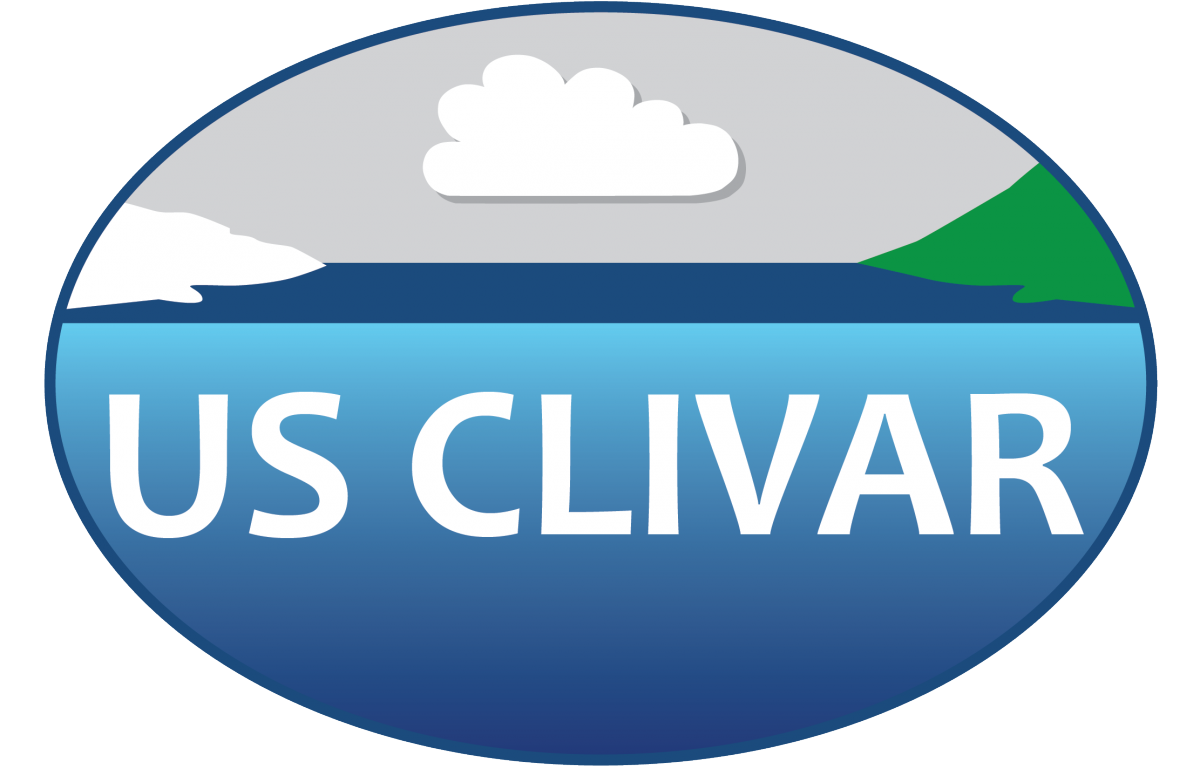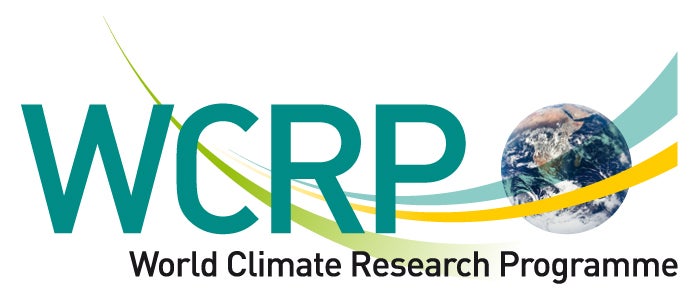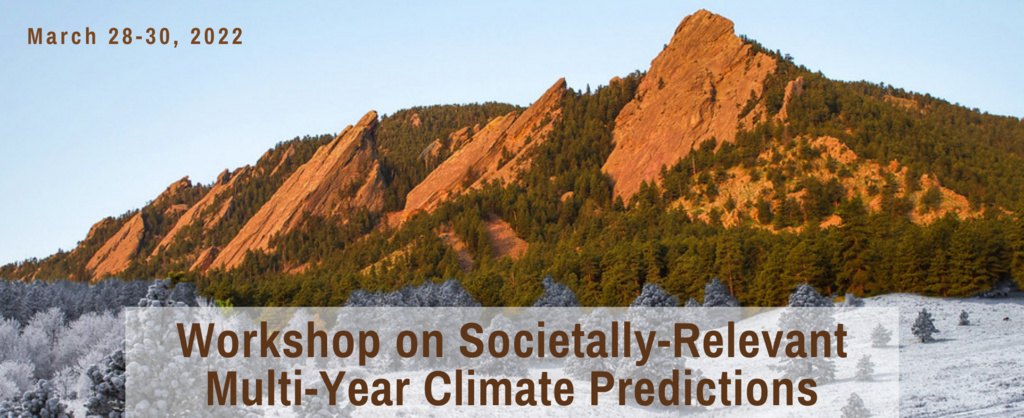Societally-Relevant Multi-Year Climate Predictions Workshop
To stimulate research into developing useful multi-year climate predictions, by identifying what can be predicted, what might be predictable, and what needs predicting for a time horizon beyond a year.
Objectives
Seasonal predictability research focuses on time scales less than a year, when both initialization and boundary forcing from sea, land, and ice provide operational forecast skill. About a decade ago, driven by high demands from stakeholders and policymakers, a few large modeling centers began a sustained effort to address “near-term” or decadal prediction of averages over several years (e.g., forecasts of Years 1-10, Years 2-5, Years 6-9 means), hoping to exploit the potential for skill revealed by many years of observational and modeling studies into decadal time-scale processes, both within the climate system and externally forced. While the seasonal and decadal prediction communities hypothetically have some overlap at these “near-term” scales, their focus tends to be greatest at opposite timescales (i.e., a few weeks to months versus many years to decades), leveraging different sources of predictability. The fast growth of the field of decadal prediction has, however, led to something of a research and operations gap in the intermediate time scales, which range from more than a few seasons to less than a few years, despite clear evidence of both societal and scientific interest in improved understanding and forecast skill on this multi-year time scale as well.
- Advance scientific understanding of multi-year predictability
- Characterize physical and dynamical processes in the coupled climate system, including the oceans, land surface, and cryosphere, that can be exploited to improve multi-year forecasts
- Highlight the challenges for producing skillful multi-year predictions with state-of-the-art earth system models
- Construct a framework to identify user requirements for multi-year predictions that will help inform predictability research and model development
- Identify knowledge gaps, determine future research direction and foster new initiatives and collaborations by bringing together research, operational, and applications community
- Assess specific observational needs for improving multi-year predictions that are not currently met
- Identify prototype applications of multi-year forecasts and assess their utility
Since year-to-year forecasts likely will have limited skill on average, knowing ahead of time when to have high confidence in the predicted outcomes is essential; that is, each forecast includes an assessment of its expected skill. Moreover, useful forecasts lie at the intersection of what can be predicted and what needs to be predicted, so applications of predictability research should consider user needs as well. The interaction of the prediction, predictability, and user communities at the outset of setting a multi-year prediction research agenda is fundamental to achieving the goals of this workshop.
Target Participants
The workshop will bring together scientists and stakeholders engaged in the modeling and forecasting communities as well as the private sector. The Organizing Committee anticipates that around 100 participants will attend and that participation from graduate students and early career scientists will be high as this is a potentially new, largely underexplored area of research. Registration is on a first-come, first-served basis until capacity is reached. Abstracts are not a requirement for participation.
Location/Date
The organizing committee is aiming to host the workshop in a hybrid format at the Embassy Suites by Hilton Boulder. March 28-30, 2022.
Workshop Format
The 2.5-day meeting will consist of plenary sessions including invited overview talks and contributed presentations, interactive poster sessions, in-depth plenary and breakout discussions, and a networking event. The oral presentations will focus on three main themes: multi-year processes in observations and models, current prediction efforts and modeling issues (technical aspects, e.g., initialization, drift, ensemble, forecast verification/uncertainty), and applications.
Outcomes
The workshop will aim to produce a white paper that not only summarizes the results of the workshop but also helps to
- Assess existing scientific knowledge on multi-year climate predictability
- Determine gaps in current physical understanding and simulation/prediction capabilities
- Identify next steps towards societally relevant multi-year predictions by mapping user/decision risk management needs on the the multi-year timeframe
- Make recommendations for future research directions
- Exploit interagency and international collaborations on end to end multi-year prediction and information use
Scientific Organizing Committee
Matt Newman, University of Colorado/CIRES and NOAA/ESRL/PSD (co-chair)
Ben Kirtman, University of Miami (co-chair)
Ed Blanchard-Wrigglesworth, University of Washington
Pedro DiNezio, University of Colorado
Sarah Larson, North Carolina State University
Bill Merryfield, Environment and Climate Change Canada
Haiyan Teng, Pacific Northwest National Laboratory
Program Organizing Committee
Cyndie Graddy (US CLIVAR)
Mike Patterson (US CLIVAR)
Jennie Zhu (US CLIVAR)
Workshop Sponsors




